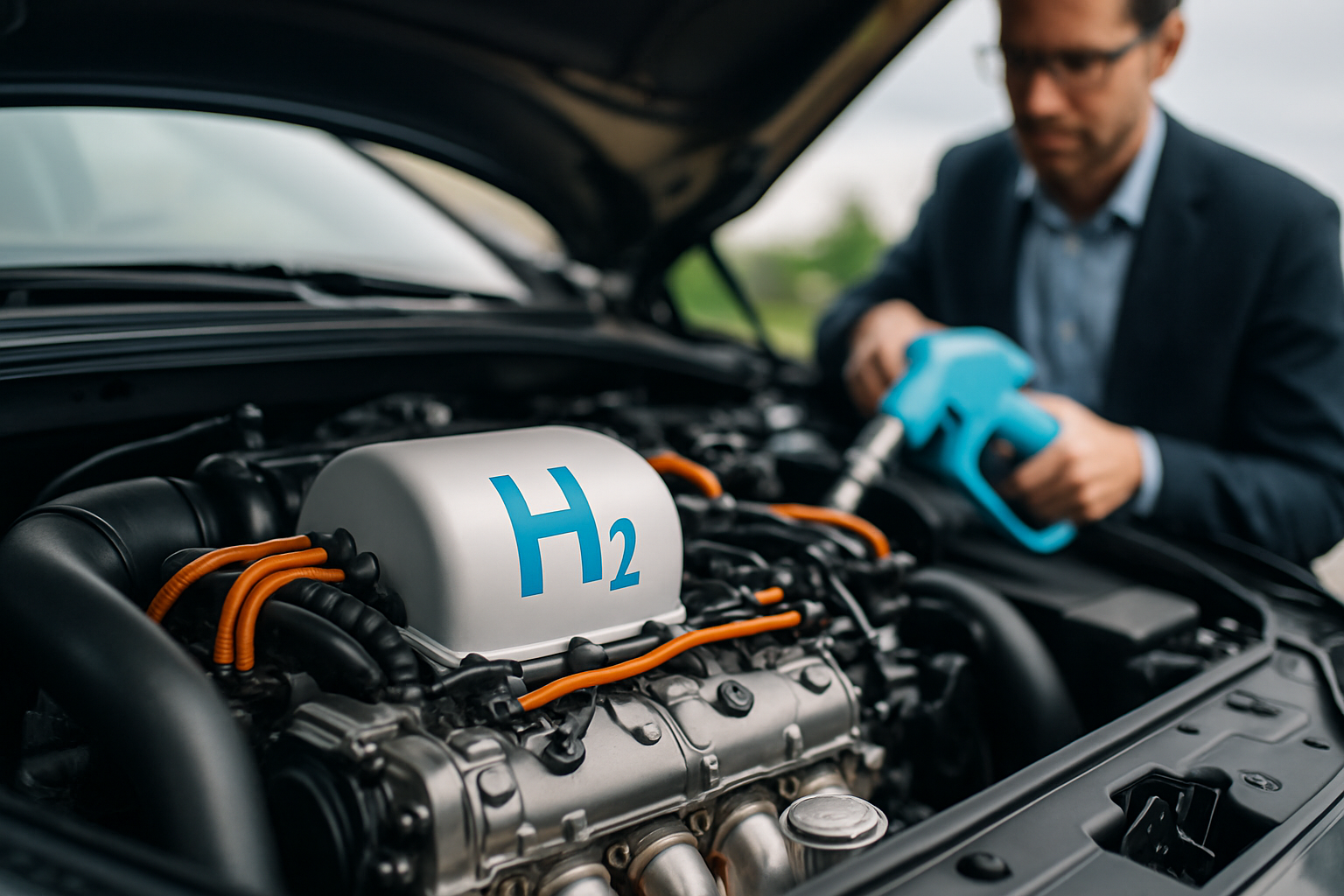Hydrogen Combustion Engines: The Next Frontier in Clean Motoring
In the quest for sustainable transportation, a groundbreaking technology is emerging that could revolutionize the automotive industry. Hydrogen combustion engines are poised to offer a compelling alternative to traditional fossil fuel powertrains, combining the familiar feel of internal combustion with zero-emission benefits. This innovative approach to propulsion is capturing the attention of manufacturers and enthusiasts alike, promising a future where performance and environmental consciousness coexist harmoniously.

The Chemistry Behind Hydrogen Combustion
Hydrogen combustion engines operate on principles similar to traditional gasoline engines, but with a crucial difference: the fuel. When hydrogen combines with oxygen in the combustion chamber, the only byproduct is water vapor. This clean-burning process eliminates the carbon emissions associated with fossil fuels, making hydrogen an attractive option for environmentally conscious consumers and manufacturers alike.
The high energy density of hydrogen allows for impressive power output, rivaling that of conventional gasoline engines. However, the low density of hydrogen gas presents challenges in fuel storage and delivery, requiring specially designed high-pressure tanks and fuel systems to ensure efficient operation and safety.
Overcoming Technical Hurdles
While the concept of hydrogen combustion engines is promising, several technical challenges have hindered widespread adoption. One of the primary obstacles has been the need for specialized fuel delivery systems capable of handling hydrogen’s unique properties. Engineers have developed advanced injectors and fuel rails that can precisely control the flow of hydrogen into the combustion chamber, optimizing efficiency and power output.
Another significant hurdle has been the potential for pre-ignition and knocking, issues that can arise due to hydrogen’s low ignition energy. To address this, manufacturers have implemented sophisticated engine management systems and redesigned combustion chambers to ensure smooth and controlled combustion across a wide range of operating conditions.
Performance Potential and Driving Experience
Contrary to some misconceptions, hydrogen combustion engines can deliver exhilarating performance. The high octane rating of hydrogen allows for higher compression ratios, translating to increased power and efficiency. Some prototype hydrogen-powered vehicles have demonstrated acceleration and top speeds comparable to their gasoline counterparts, dispelling concerns about compromised performance.
From a driving perspective, hydrogen combustion engines offer a familiar experience for those accustomed to traditional internal combustion engines. The characteristic sound and vibration of a piston engine are preserved, providing a sensory connection that many driving enthusiasts appreciate. This familiarity could play a crucial role in consumer acceptance as the industry transitions towards cleaner propulsion technologies.
Infrastructure and Production Challenges
While the technology behind hydrogen combustion engines continues to advance, the broader adoption of this propulsion system faces significant infrastructural challenges. The current lack of widespread hydrogen fueling stations poses a major hurdle for potential consumers. However, several countries and private companies are investing heavily in expanding hydrogen infrastructure, recognizing its potential as a key component of a sustainable transportation ecosystem.
The production of hydrogen itself presents another challenge. While hydrogen is the most abundant element in the universe, extracting and purifying it for use as a fuel can be energy-intensive. The industry is actively exploring more efficient and sustainable methods of hydrogen production, including electrolysis powered by renewable energy sources and innovative bioengineering approaches.
The Role of Motorsports in Development
As with many automotive technologies, motorsports are playing a crucial role in the development and refinement of hydrogen combustion engines. Several racing series have introduced hydrogen-powered categories, providing a high-stakes testing ground for this emerging technology. These competitive environments push the boundaries of performance and reliability, accelerating the pace of innovation and generating valuable data for road car applications.
The visibility of hydrogen-powered race cars also serves to generate public interest and acceptance of the technology. As spectators witness the capabilities of these vehicles on the track, perceptions of hydrogen as a viable and exciting fuel source for everyday transportation begin to shift.
Collaborative Efforts and Industry Partnerships
The development of hydrogen combustion engine technology has sparked unprecedented collaboration within the automotive industry. Traditional rivals are joining forces to share research and development costs, recognizing the potential of this technology to reshape the future of transportation. These partnerships extend beyond car manufacturers to include energy companies, government agencies, and research institutions, creating a robust ecosystem to support the advancement of hydrogen propulsion.
This collaborative approach is not only accelerating technological progress but also helping to address the broader challenges of infrastructure development and hydrogen production. By pooling resources and expertise, the industry is working towards creating a comprehensive hydrogen economy that extends far beyond the automotive sector.
The Path Forward: Challenges and Opportunities
As hydrogen combustion engine technology continues to evolve, several challenges remain on the path to widespread adoption. Cost remains a significant factor, with current hydrogen-powered vehicles carrying a premium over their gasoline counterparts. However, as production scales up and technology matures, these costs are expected to decrease, making hydrogen a more accessible option for consumers.
Safety concerns, particularly regarding the storage and handling of hydrogen, must also be thoroughly addressed to gain public trust. While hydrogen vehicles have proven to be as safe as conventional cars in crash tests and real-world scenarios, ongoing education and awareness campaigns will be crucial in dispelling misconceptions.
Despite these challenges, the potential benefits of hydrogen combustion engines are immense. As the world grapples with the urgent need to reduce carbon emissions, this technology offers a promising path forward that aligns with existing automotive infrastructure and consumer expectations. With continued investment and innovation, hydrogen combustion engines could play a pivotal role in creating a sustainable and exciting future for personal transportation.






